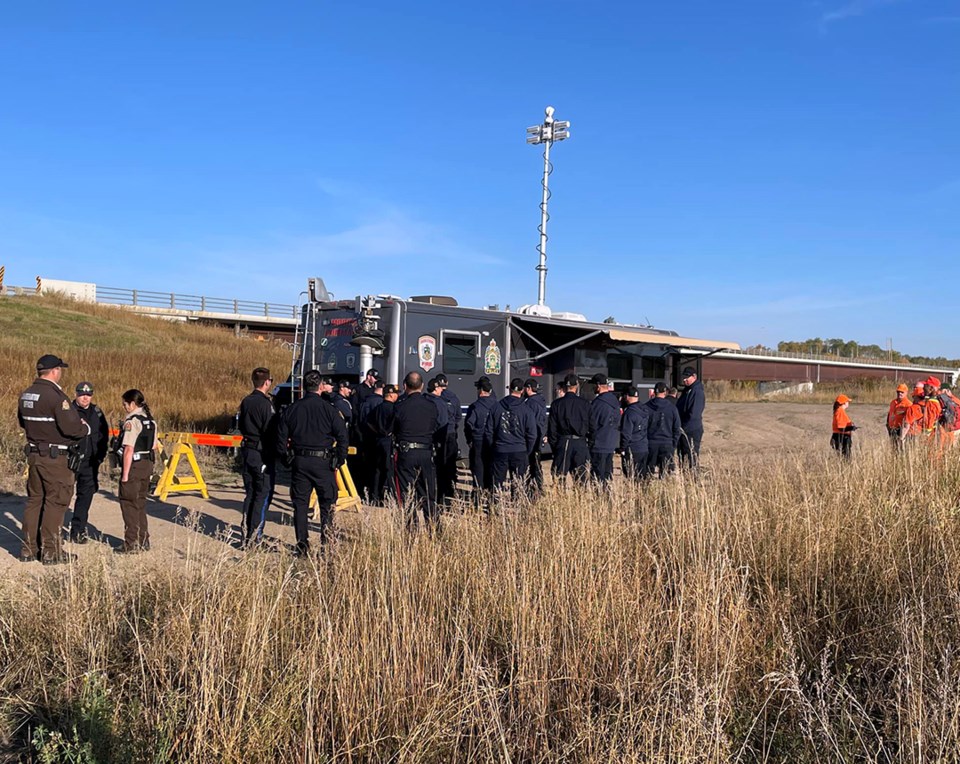PRINCE ALBERT — Brian Gallagher never held back on educating his daughters about the harsh realities of missing and murdered Indigenous women and girls.
Yet one is suspected to have been brutally killed and dumped.
“This is ground zero for missing and murdered Indigenous women and girls (MMIWG),” he said.
“Growing up as an Indigenous person in the city, we know that there are different realities for Indigenous people. We face different challenges. I try to educate my daughters the best that I could – but it still happened to one of them.”
Megan Gallagher was 30 years old when she was last seen on Sept. 20, 2020, in Saskatoon. Just over two years later, her remains were located along the South Saskatchewan River by St. Louis.
Nine people are charged in her death, four with first-degree murder. Other charges include indignity to human remains, aggravated assault and unlawful confinement.
Megan’s family has become well-known advocates of MMIWG across Saskatchewan, attending the Prince Albert Grand Council Women’s Commission awareness walk in June. Every year in September, they host a memorial walk in Saskatoon to continue the conversation.
“Breaking the silence works,” said Brian.
“One of the things that perpetrators do, is silence is one of the tools that they use and they use fear to keep people quiet. If we can break that silence in any way, I think we can reduce the numbers of the incidences of things like this.”
He said police have told the family that for every awareness walk, they receive between 60 and 100 new tips.
“There’s something magical that happens when people walk in a group…Conversations start relationships and relationships build community and community creates healing.”
‘A special kind of hell’
Brian described his daughter as giving. She would always offer others a ride, or a cigarette; whatever others needed, she was willing to help out.
She was also social and remained in touch with her family – the main indicator that something was wrong when she first went missing.
It was hard to function for the first few days, explained Brian.
“You don’t have an appetite and you have to force yourself to eat. You don’t sleep, or you don’t sleep the same. You don’t sleep right. You grab a minute or two when you can because when you close your eyes, you have these pictures of what might have happened,” he said.
“Those days, they were, I don’t know how to describe them, a special kind of hell.”
He said this anniversary, in many ways, has been the hardest because he doesn’t “know what the future holds.”
Pre-trials for the more severe charges in Megan’s death start on Monday.
“They’ll present the evidence that they have and we’ll hear statements about various things that I think are going to hurt,” he said.
Earlier this year, John Wayne Sanderson and Jessica Faye Badger were sentenced after pleading guilty to charges of indignity to human remains.
Sanderson was sentenced to three years for loading Megan’s body into a truck, driving her to the St. Louis area and throwing her body into the river. Badger received a conditional sentence of two years less a day, followed by an 18-month probation, for giving Sanderson gas money so that he could dump her body.
Ernest Vernon Whitehead was also sentenced to two years and seven days for helping Sanderson dispose of her body.
According to the Native Women’s Association of Canada, about 10 per cent of MMIWG cases in Canada are from Saskatchewan.
– with files from Bre McAdam, Saskatoon StarPhoenix
You can no longer count on social media to deliver important news to you. Keep your news a touch away by bookmarking SASKTODAY.ca's homepage at this link.




